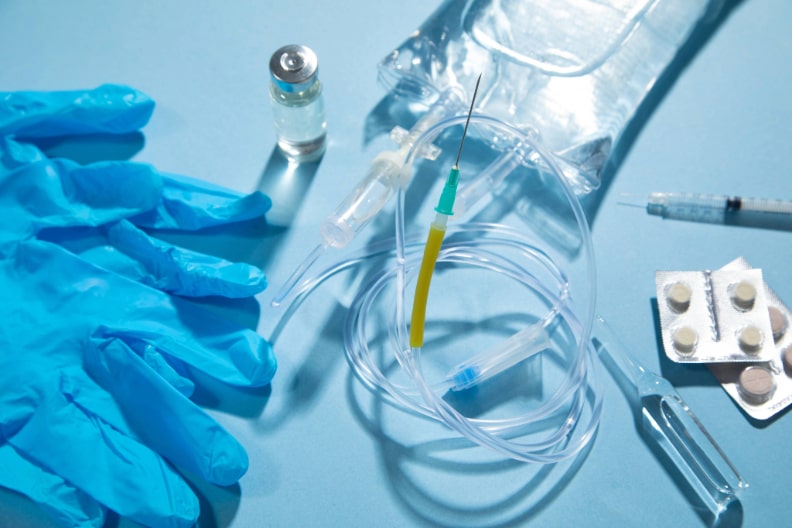Accelerated Aging Test (Shelf Life Test)

Accelerated Aging: Stability Testing with ASTM F1980
Medical products and devices must provide long-term reliability for the health and safety of patients. However, real-time testing can take a very long time, especially when evaluating the service life and shelf life of these products. This is where accelerated aging testing comes into play. In this article, we will examine the basic purpose of accelerated aging testing and the role of the ASTM F1980 standard in this test.
What is Accelerated Aging Testing?
Accelerated aging testing is a test conducted to simulate how medical devices and products will perform under real-world conditions in a shorter timeframe. This test measures the durability and stability of a product by replicating the environmental factors it will be exposed to over time, such as temperature, humidity, and other environmental factors.
For example: These tests verify that plastic medical devices remain sterile for long periods of time, do not lose their elasticity, and continue to function safely. Accelerated aging allows the quality of these products to be evaluated in a shorter period of time, enabling them to be brought to market more quickly.
What is the ASTM F1980 Standard?
ASTM F1980 is a standard that provides guidance for accelerated aging tests. According to this standard, the shelf life conditions of medical products are simulated in an accelerated manner based on environmental stress factors. ASTM F1980 specifies the following key factors to consider during the testing process:
- Test Temperature and Duration: The standard recommends that the test temperature be set at a level that accelerates the natural aging of the product without causing structural deterioration. This temperature value is usually set to accelerate the product's service life by 2 to 3 times.
- Environmental Factors: Environmental factors such as humidity, light, and oxygen, which have a significant impact on product durability, must be taken into account during the testing process.
- Material Selection and Packaging: The properties of materials used in medical devices are of great importance in terms of stability. ASTM F1980 ensures that the test is performed appropriately for these materials and that the packaging conditions remain stable throughout the product's shelf life.
Benefits of Accelerated Aging Testing
This test has many advantages:
- Time Savings: By accelerating the aging process that would occur during the natural life of the product, it allows shelf life data to be obtained in a shorter period of time.
- Cost Efficiency: Conducting accelerated tests instead of testing products over long periods reduces costs.
- Product Safety and Compliance: Tests conducted in accordance with international standards such as ASTM F1980 prove that products meet safety, durability, and compliance criteria. These tests may be required in international approval processes such as CE and FDA.
Accelerated aging testing is critical for medical products to ensure patient safety. ASTM F1980 ensures that these tests are conducted using the correct methods, demonstrating whether products can maintain their quality throughout their shelf life.
ASTM F1980 and Test Methods
The standard recommends several different test methods for accelerated aging testing:
- Heat Aging: The product is aged by raising the temperature in the test environment. For example, an aging test conducted at 55°C allows us to evaluate the product's lifespan by subjecting it to prolonged exposure at higher temperatures.
- Humidity Test: The product's resistance to deterioration is measured under specific humidity conditions. Humidity testing is particularly important for biocompatible products, as these products are exposed to moisture for extended periods of time.
- Chemical Interaction Tests: These tests evaluate how medical devices interact with chemicals used during sterilization. They assess whether chemicals remaining on the product after sterilization will cause deterioration in the long term.
Why NANOLAB?
With its industry experience and robust infrastructure in accelerated aging and stability testing, Nanolab always offers the most reliable and fastest solutions. In full compliance with the ASTM F1980 standard, accelerated aging tests are conducted to determine the long-term stability of products. Thanks to ISO 17025 accreditation, test results are internationally recognized, ensuring that product safety and durability are accurately assessed. With its extensive equipment fleet and expert technical team, it conducts accelerated aging tests with meticulous care and delivers fast, effective results. Thanks to its regulatory expertise, it ensures full compliance with ASTM F1980 and other legal requirements. Nanolab stands out as the go-to destination where quality, reliability, and speed converge in accelerated aging and stability testing.

